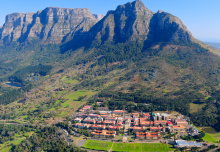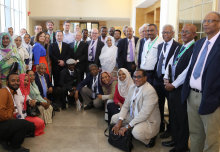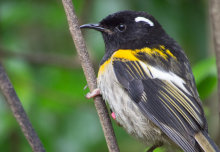

Designer babies
Utopia or dystopia: Researchers debate the future of gene editing embryos
Scientists discussed the ethics of CRISPR-Cas9 as part of a partnership event for Imperial students with The Times.



Utopia or dystopia: Researchers debate the future of gene editing embryos
Scientists discussed the ethics of CRISPR-Cas9 as part of a partnership event for Imperial students with The Times.


Imperial and MIT announce winners of first Africa-focused seed fund
Imperial College London and the Massachusetts Institute of Technology (MIT) have announced the winners of the first Africa-focused seed fund.


Early use of antibiotics in elderly patients associated with reduced sepsis risk
Prescribing antibiotics immediately for elderly patients with urinary tract infections is linked with a reduced risk of sepsis and death.


Steroid treatment for premature babies linked to low birth weight
Steroid injections given to mothers at risk of giving birth prematurely are linked to babies being born with lower body weights.


Distorted, stretched DNA may increase risk of CRISPR-Cas9 mistakes
Distortions to DNA could lead to off-target changes to the genome when using CRISPR-Cas9, a new study suggests.


Promising peanut trial offers hope for children with life-threatening allergy
Boiled peanut could provide a safe and effective treatment for children with potentially life-threatening peanut allergy.


New sensor technology can diagnose reproductive health problems in real-time
Researchers have developed new robotic sensor technology that has the capability to diagnose women’s reproductive health problems in real-time.
 1
1


Sudan collaborations could help tackle disease in Africa
Imperial academics are collaborating with the University of Khartoum and Ahfad University for Women to address the burden of disease in Sudan.


Artificial intelligence can predict survival of ovarian cancer patients
Researchers have created new machine learning software that can forecast the survival rates and response to treatments of patients with ovarian cancer


‘Eavesdropping’ technology used to protect one of New Zealand’s rarest birds
Remote recording devices have been used for the first time to track the reintroduction of a rare species back into its native habitat.